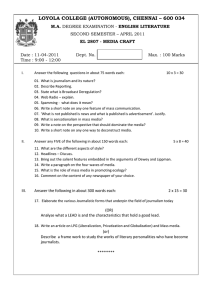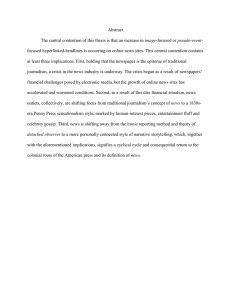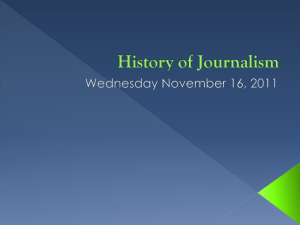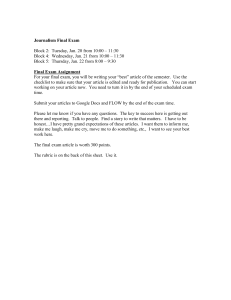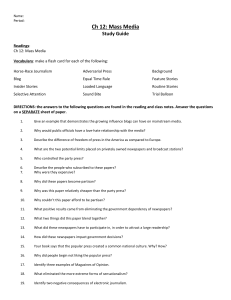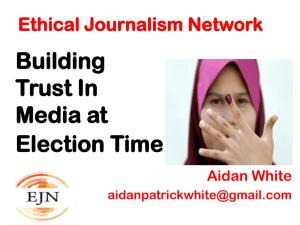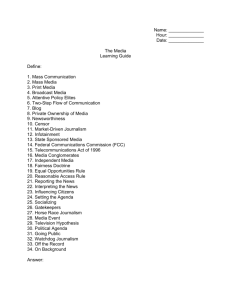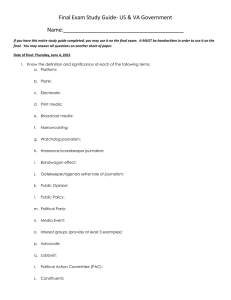Chapter 12 Study Guide
advertisement
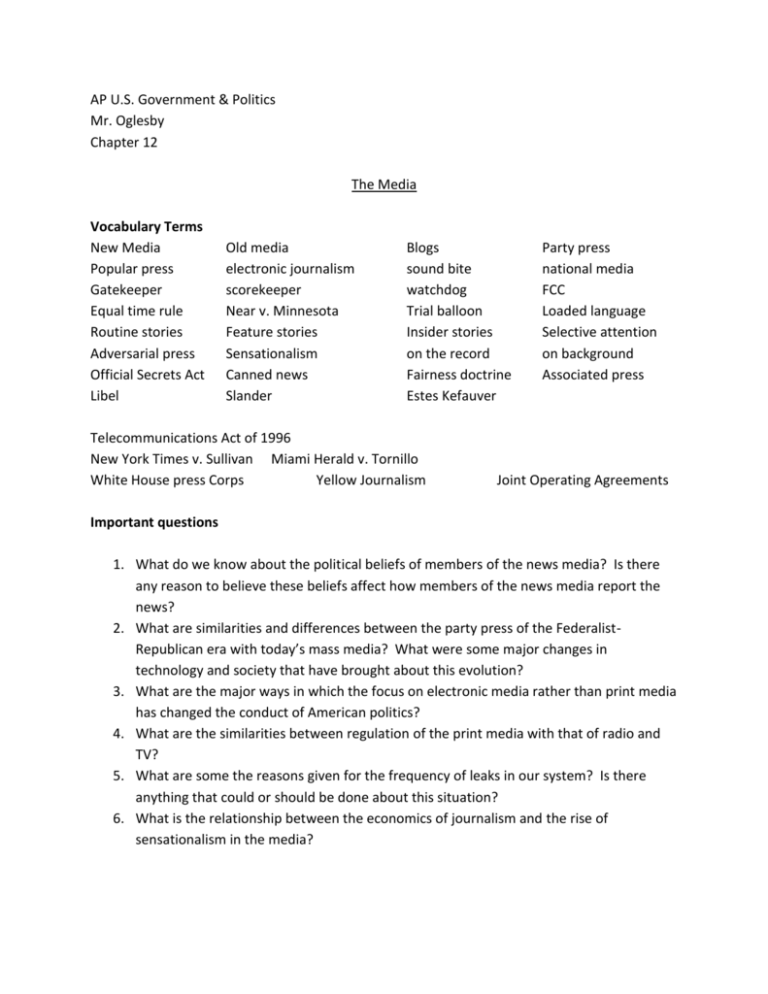
AP U.S. Government & Politics Mr. Oglesby Chapter 12 The Media Vocabulary Terms New Media Popular press Gatekeeper Equal time rule Routine stories Adversarial press Official Secrets Act Libel Old media electronic journalism scorekeeper Near v. Minnesota Feature stories Sensationalism Canned news Slander Blogs sound bite watchdog Trial balloon Insider stories on the record Fairness doctrine Estes Kefauver Telecommunications Act of 1996 New York Times v. Sullivan Miami Herald v. Tornillo White House press Corps Yellow Journalism Party press national media FCC Loaded language Selective attention on background Associated press Joint Operating Agreements Important questions 1. What do we know about the political beliefs of members of the news media? Is there any reason to believe these beliefs affect how members of the news media report the news? 2. What are similarities and differences between the party press of the FederalistRepublican era with today’s mass media? What were some major changes in technology and society that have brought about this evolution? 3. What are the major ways in which the focus on electronic media rather than print media has changed the conduct of American politics? 4. What are the similarities between regulation of the print media with that of radio and TV? 5. What are some the reasons given for the frequency of leaks in our system? Is there anything that could or should be done about this situation? 6. What is the relationship between the economics of journalism and the rise of sensationalism in the media?
